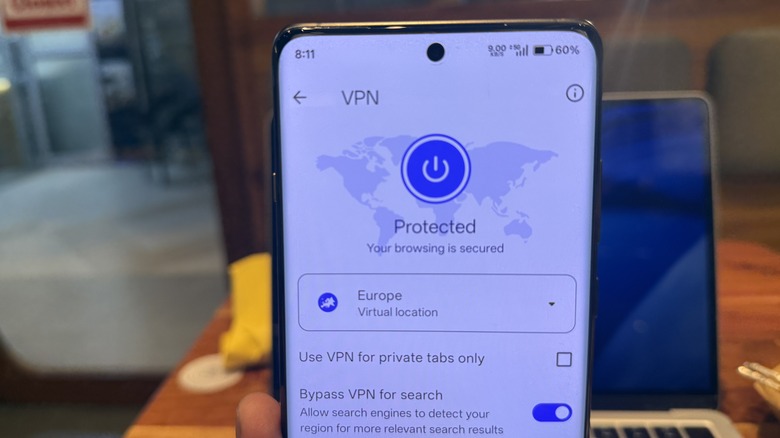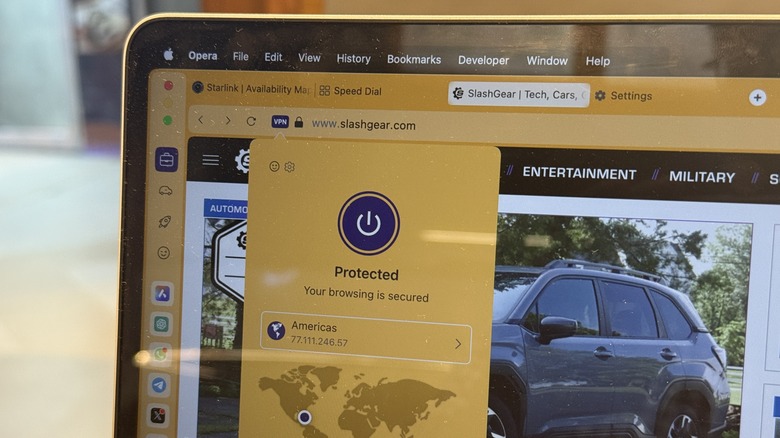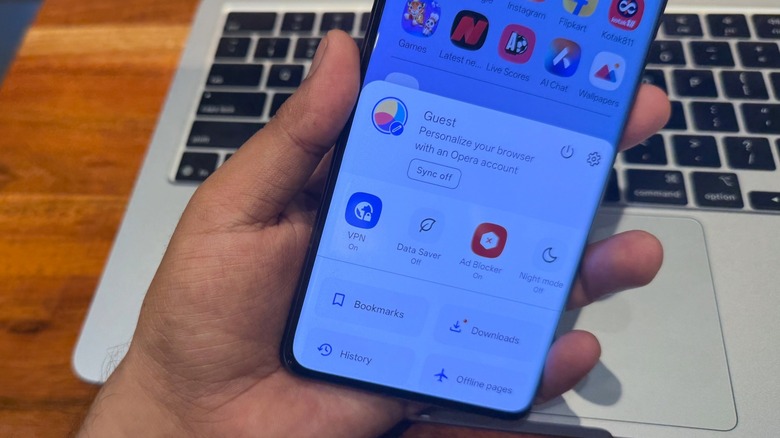How Does Opera's VPN Work? (And What You Should Know Before Using It)
Over the past few years, Virtual Private Networks (VPN) have become popular to bypass censorship, skirt around surveillance, and break past local restrictions. Names like ProtonVPN, NordVPN, ExpressVPN, and Surfshark are fairly popular among users, even though they are paid tools. Thankfully, there are a few free VPN options out there, as well. Among them is Opera, which has been available in different formats for nearly a decade.
But as the saying goes in the tech community, if you're not paying for a product, you are the product. VPNs are no different. The Norway-based browser company has been serving a free built-in VPN service with its mobile and desktop browsers, and separately offers a paid VPN Pro service, which relies on the next-gen Lightway Protocol hosted on ExpressVPN servers. In a nutshell, the latter is as good as any of the trusted paid VPN tools. For this story, we are focusing on the free VPN service that is built within Opera's mobile and desktop browsers.
To start, you don't need to create a user account to use the built-in VPN. Now, before we go into the technical details, here's the important part. Even with its free VPN, Opera follows a log report. And as per the transparency report released by the company, it essentially replies with "we have no user data" to all the data requests made by local and international law enforcement authorities, including the country's National Criminal Investigation Service (KRIPOS).
The safety infrastructure
The backbone of any VPN is privacy, and that is achieved by encrypting all the user data that leaves a user's computer and reaches the servers. The core idea is to keep the connection private, even if your mobile or PC is hooked to a public network. In an encrypted format, all the user and activity data is essentially a jumbled mess to a bad actor, if they somehow manage to break in at any stage. Opera's free VPN service, unsurprisingly, relies on encryption to the same effect.
"When you enable Opera's VPN, your browser creates a secure tunnel between you and one of our physical VPN servers, and encrypts your browser traffic with industry-standard 256-bit encryption," says the company. For the unaware, 256-bit encryption is extremely strong and the industry standard, as well. According to the Center for Strategic & International Studies, it could take "300 trillion years from traditional computers" to break it.
Beyond data safety, Opera also assures that its free VPN cares about privacy, too. To that end, it doesn't track users' online activity, and neither does it maintain any log. There is no data logging function built as part of the free VPN's foundations in the first place. The safety claims, which include assessments of VPN infrastructure, IT systems, server configuration, and deployment process, have been audited and cleared independently, including by cybersecurity firm Cure53. But it's still free, right? Opera claims that it runs its business through business partnerships, showing ads to users in its web browser, and by selling its paid VPN Pro tool.
Is it safe?
The Mozilla Organization, categorically, notes that free VPNs are a security risk and adds that the status quo has a lot to do with the business model. If a product is free, companies either rely on advertising or sell the user data to advertisers. "Free VPNs don't have the resources to develop and maintain strong security protocols," says the non-profit, adding that due to a lack of resources, these free VPNs can't keep up with the ever-evolving landscape of cyber threats.
Now, it would make little sense to directly discard a free VPN service offered by a trusted name like Opera, but there is certainly precedent for avoiding free VPN services, especially if they come from unknown names. Just over a year ago, the FBI uncovered an international botnet network, which seeded malware using free VPN tools such as MaskVPN and DewVPN. The operation, which ran between 2014 and 2022, harvested 19 million unique IP addresses, eventually making millions of dollars by selling the data to bad actors.
An analysis of the 100 most popular free VPN apps on the Google Play Store also revealed that roughly 90% of them leak user data, nearly a third rely on weak encryption or demand excess hardware resource access. Not to mention, one-fifth of them were flagged as malware. To its credit, Opera passed independent security audits of its free VPN service. But do keep in mind that its network performance is not the best, and it only protects data while using the Opera browser, and not any other browser or software on your mobile or PC.


